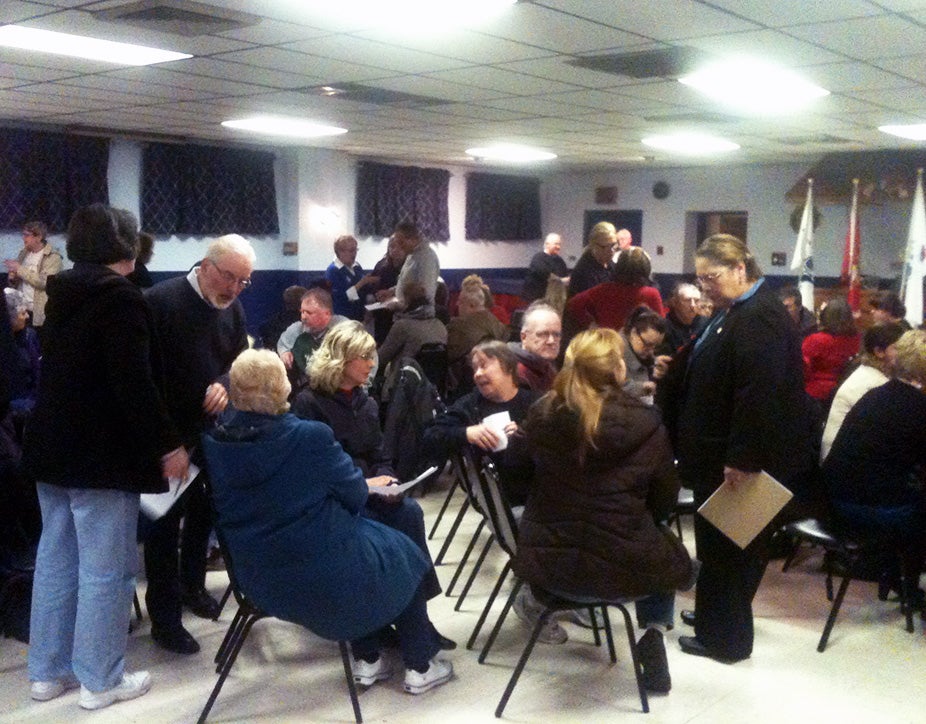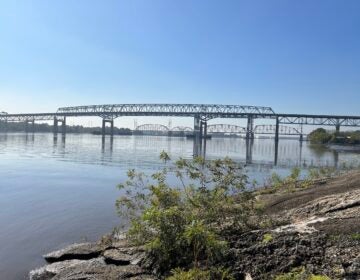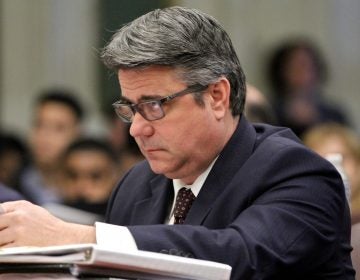Henon solicits community input on rezoning of “Cokie” site in Bridesburg

Were you to drive north on Interstate 95 from the Navy Yard into Bucks County, pretty much every residential neighborhood you’d see would be on your left, except for Bridesburg. Bridesburg is unique—severed from the Delaware River not by a highway, but by industry, and the ruins thereof.
In 2007, one of those industrial sites—home to the former Philadelphia Coke Company, now known colloquially as Cokies—was changed from industrial zoning to an experimental Waterfront Redevelopment zoning district. The Westrum Development Company planned, briefly, to build a 720-unit housing development on a portion of the 67-acre site. The plan fell through, and the bulk of the site now sits empty, zoned RMX-2, a residential mixed-use category.
Late last year, 6th-District Councilman Bobby Henon introduced a bill that would rezone the site from residential to a mix of industrial uses. The Philadelphia Authority for Industrial Development owns an 8-or-so-acre portion of the site closest to the river and across Orthodox Street from Kuusakoski, a company that recycles scrap metal, plastics, and electronics.
Councilman Henon told PlanPhilly at a community meeting Wednesday night that he introduced the bill initially because Kuusakoski is considering either expanding in its current location or relocating to Chicago. The rezoning of the PAID site was meant to encourage the company to stay and add jobs in Philadelphia, Henon said.
PlanPhilly previously reported, incorrectly, that the rezoning was meant to attract an outside company that was considering locating in either Philadelphia or Chicago. During a presentation of the bill to the Planning Commission last month, a Commission staffer said that “the city is in discussion with a potential tenant to come in.” Commission director Gary Jastrzab later told PlanPhilly that the staffer had misspoken.
Henon said that he decided to rezone the whole 67-acre site, rather than just the PAID parcel, because it had been rezoned as a whole previously, under his predecessor Joan Krajewski.
The rezoning proposal struck a nerve in Bridesburg—the front page of this month’s Bridesburg Bulletin reads, “Rezoning of ‘Cokies’ has Residents in Uproar.” Henon held a contentious community meeting at the Bridesburg American Legion post late last month, at which residents chastised him, quite vocally, for not alerting and engaging the community in the process of re-designating a site of that size. At the end of the meeting, Henon agreed to hold the bill and form a working group to discuss other ideas for the site. He made good on his promise to hold the bill during a Council Rules Committee hearing at the end of January.
On Wednesday, Henon held a second community meeting to solicit other ideas for development on the non-PAID portion of the site, most of which is owned—but neither used nor, reportedly, well-maintained—by the international energy company National Grid. At the meeting, Henon and his staff members passed out maps of the site and asked the more than 50 attendees to split up into groups of ten and write down the types of developments they would like to see there.
As smaller groups slowly started to congeal, one attendee got up at the front of the room and asked, “Does anybody not want a park?”
The man seemed to have his finger on the pulse: most people wanted to see the site turned into some kind of park, providing residents access to the riverfront.
“Everybody wants a park here,” said Bridesburg resident Barb Jackowicz.
Jackowicz said she’d also like to see a riverfront restaurant for boaters to use. Another resident said she’d like to see something like the Salvation Army Kroc Center in Hunting Park. Another drew a sketch of gymnasium facilities—and a parking lot behind them—she hoped could be installed on the portion of the site closest to the neighborhood.
Henon, admitting that the vast majority of the site is privately owned, said he is open to any type of rezoning the community wants to see. He has said repeatedly that his intention in rezoning the bulk of the site is to “generate a buzz” and get potential developers to consider its possibilities. He told several attendees at Wednesday’s meeting that, even though “99.9% of rezonings have an end user in mind,” the current one does not—with the exception of the small parcel owned by PAID.
“My intention was for the community to come up with an acceptable scenario based on responsible development, if [National Grid chooses] to sell their land,” Henon said. “Right now, all we’re getting is phone calls about the blighted property.”
Whatever their particular interests in the site, many attendees seemed upset simply at the fact that the bill had been introduced without their consultation.
“We felt like we were uninformed,” said Barb Jackowicz, “and shafted.”
“If you’re doing anything this large in the community,” said Tom Pomager, an attendee, “the community has to be involved.”
Contact the reporter at jbrey@planphilly.com and follow him on Twitter @jaredbrey
WHYY is your source for fact-based, in-depth journalism and information. As a nonprofit organization, we rely on financial support from readers like you. Please give today.





